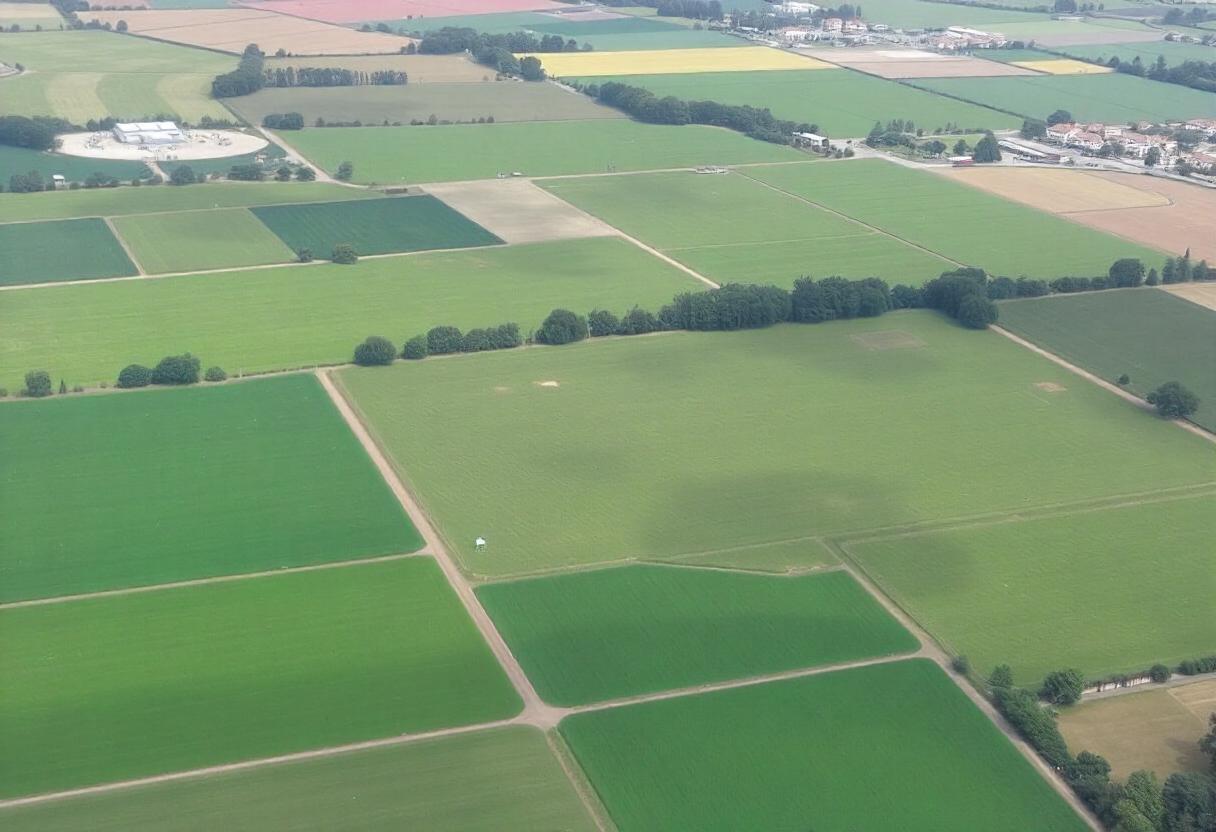
Agriculture zoned land refers to property that is legally designated for farming and agricultural use. This zoning classification restricts the land’s usage primarily to agricultural activities such as crop production, livestock farming, and other related operations. For those interested in farming, investing in agriculture zoned land can be a valuable opportunity to start or expand farming ventures.
Benefits of Purchasing Agriculture Zoned Land
Agriculture zoned land offers several advantages for farmers and investors. These benefits make it an attractive option for anyone interested in farming or land investment.
- Legal Protection for Farming Activities
Land zoned for agriculture provides legal protection for farming activities. Local zoning regulations ensure that agriculture takes precedence over residential or commercial development. This allows farmers to focus on farming without the risk of interference from non-agricultural neighbors. - Lower Property Taxes
Agriculture zoned land often comes with tax incentives that reduce property taxes for farmers. Many local governments offer agricultural exemptions, which lower the tax burden for property owners using the land for farming purposes. This can significantly reduce the overall cost of land ownership. - Sustainability and Environmental Benefits
Purchasing agriculture zoned land promotes sustainable land use. Instead of converting rural land into residential or commercial developments, agriculture zoning helps preserve green spaces and maintain natural habitats. This contributes to biodiversity and environmental health. - Potential for Agricultural Income
Land buyers have the potential to generate income from farming activities. Whether through crop production, livestock farming, or other agricultural endeavors, owners can turn agriculture zoned land into a profitable business. Additionally, the rise of organic farming and eco-friendly agricultural practices can open up new markets and opportunities.
Factors to Consider When Buying Agriculture Zoned Land
Before purchasing agriculture zoned land, it is important to consider several factors that may impact the land’s suitability for farming.
- Soil Quality
One of the most crucial factors in farming success is soil quality. Prospective buyers should analyze the soil type, drainage, fertility, and nutrient content. A soil test can provide valuable information about whether the land is suitable for specific crops or livestock. - Water Access
Agriculture requires reliable access to water for irrigation and livestock. Buyers should investigate the availability of water sources such as rivers, lakes, or wells on the property. In areas where water is scarce, it may be necessary to invest in irrigation systems, which can increase costs. - Zoning Restrictions
While agriculture zoned land is primarily intended for farming, there may be additional restrictions. Buyers should review local zoning regulations to ensure that their planned farming activities comply with any rules or limitations. Some areas may restrict certain types of livestock or commercial farming operations. - Proximity to Markets and Infrastructure
The location of agriculture zoned land relative to markets and transportation infrastructure can affect its profitability. Buyers should consider how close the land is to major roads, processing facilities, and urban markets. Easy access to markets helps reduce transportation costs and improves sales opportunities for farm products.
Types of Agriculture Zoned Land for Sale
Agriculture zoned land for sale comes in different types, each with its own set of advantages and considerations.
- Raw Agricultural Land
Raw agricultural land refers to undeveloped property that has not been farmed before. This type of land offers a blank slate for buyers to design and implement their farming vision. However, raw land may require significant investment in infrastructure, including fencing, water access, and electricity. - Working Farms and Ranches
Buyers can also purchase existing farms and ranches that are already operational. This type of agriculture zoned land may come with established infrastructure such as barns, irrigation systems, and equipment. In some cases, these properties may also include livestock or crops ready for harvest. - Organic-Certified Agricultural Land
Organic-certified land is a specialized type of agriculture zoned property. This land has been certified for organic farming, which means that it meets specific standards for sustainable and chemical-free agriculture. Organic-certified land is ideal for buyers looking to enter the growing market for organic food and products.
Financial Considerations for Purchasing Agriculture Zoned Land
Investing in agriculture zoned land comes with several financial considerations that potential buyers should be aware of.
- Financing Options
Agricultural land purchases often require specialized financing options. Buyers should explore loans specifically designed for agricultural land, as these may offer better terms than traditional mortgages. Some programs, such as government-sponsored agricultural loans, provide lower interest rates and flexible payment plans for farmers. - Costs of Land Development
If the land is undeveloped, buyers will need to consider the cost of developing the property for farming. This includes costs for clearing the land, building infrastructure, and installing irrigation systems. Buyers should factor these expenses into their overall budget to ensure the investment remains profitable. - Land Value Appreciation
Agriculture zoned land can appreciate over time, particularly if it is located in a region experiencing growth in agricultural markets or rural development. This makes it an appealing long-term investment, as the land may increase in value even if the buyer is not actively farming.